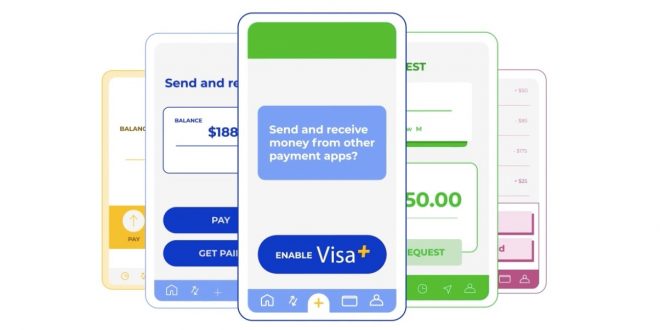Visa is working with several financial service and payment companies to create an interoperable peer-to-peer (P2P) payment service that lets people send money to friends regardless of their payment service.
Digital payments have revolutionized commerce, but the sheer number of payment apps has made sending money to others difficult. Both using PayPal works well. If not, they must bank transfer or use multiple P2P payment apps.
Visa’s new service, Visa+, addresses that issue. Visa+ will enable U.S. Venmo and PayPal users to transfer money later this year. Note that PayPal owns Venmo through its former parent eBay’s $800 million Braintree acquisition a decade ago, but the two services cannot transfer money in real time.
With Visa+ activated, neither PayPal or Venmo user needs a Visa card. Visa provides the infrastructure and connects the two services. Users create a payment handle linked to their PayPal or Venmo account and share it with whoever they want to pay. This means nobody has to share mobile phone numbers, email addresses, or other personal details, which may be useful for one-time payments between people who are unlikely to interact again.

Western Union, TabaPay, i2C, and DailyPay have also committed to Visa+ for today’s announcement, which Visa says will help expand Visa+ to gig and creator economies and online marketplaces.
Visa’s initial partners exclude Cash App, Google, and Apple, among others. The Linux Foundation recently launched the Open Wallet Foundation to promote digital wallet interoperability. Visa+ fits into that broader push, though its initial scope is limited. Visa will likely push for more third parties to join before its rollout.
 Tech Gadget Central Latest Tech News and Reviews
Tech Gadget Central Latest Tech News and Reviews




